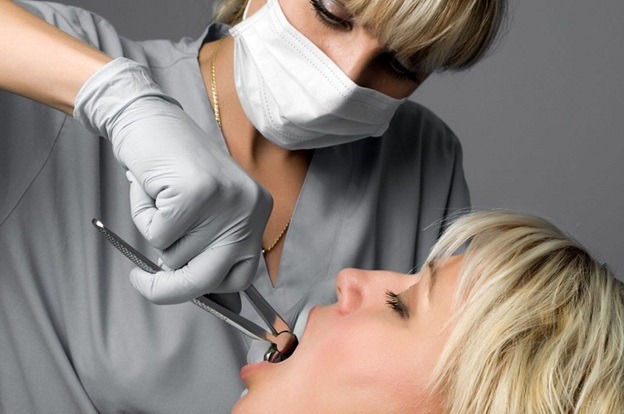When your wisdom teeth are extracted, you may experience discomfort, slight pain, transient numbness, soreness, or weariness. Typically, the extraction of wisdom teeth is performed when the patient is highly medicated or under general anesthesia. This implies that you will likely feel exhausted and need sleep after the surgery.
After your wisdom teeth have been taken, your oral surgeon or dentist should go through all of the after-care recommendations with you, but if you’re wondering how to sleep after wisdom teeth removal, you’re not alone. Resting after surgery, like sleeping after any procedure, can be difficult. Relaxation is vital for quicker recovery, but if individuals are not cautious, they may prolong the recovery.
Are you concerned about how wisdom teeth extraction may affect your sleep? You don’t need to fear; anyone should sleep more peacefully if one takes the proper steps below. Also, you can prefer sedation dentist Essex which makes your smile better.
Take Medications
To begin, ensure an individual takes the prescribed medications by surgeons. This is necessary for two purposes: first, it helps in the fight against infections, and second, it enables you to rest if you are suffering.
Perhaps your specialist will give you medicine that will ease your pain. If not, Ibuprofen will make you feel better. Apply an ice pack to the affected cheek if it is swollen or painful.
Sleep Under Supervision
For the first 24 hours, you should sleep with your head higher than your heart. It’s indeed better not to lie flat since this could trigger swelling. Remember that resting on the operative side can delay healing because of tension on the extraction point.
Moreover, a hard removal may result in increased bleeding and pain. To drain blood, surgeons apply cotton gauze to a wound. It is advised to keep the piece of cotton in place while sleeping.
To lessen the chance of choking, have someone wake you up each hour to check that the gauze is still in place. Is it essential to use gauze after wisdom teeth removal? Medication might cause you to be drowsy, and sleeping with gauze in your mouth is not a good idea in this situation.
As a result, surgeons advise patients to use gauze only when necessary.
Consult a Surgeon If You Suffer Symptoms
It would be best if you were well-prepared for the recovery period after removing your wisdom teeth. It is crucial that you sleep in the correct position while being supervised and that you take your medicine as directed.
Get in touch with your surgeon if something terrible happens and you are concerned about getting an infection or if the pain is so severe that it prevents you from sleeping. They could examine the wound area and provide further recommendations on improving sleep quality.
Maintain an Inclined and Elevated Head Position
This is an effective strategy to relax the body while lowering any facial swelling. For the initial two days, rest with your head up. Resting on the side is not advised. Let gravity cooperate with you for a few days to speed up recovery.
Take the following steps to decrease discomfort and swelling after a surgical procedure. For 3 days, keep a 45-degree position with your upper body and head. The blood vessels surrounding the tooth extraction flow downward instead of resting in the operating area, which might also help treat pain.
Remove the Gauze from the Mouth
Leaving all gauze from the mouth before going to sleep after wisdom teeth removal and keeping gauze in the mouth while sleeping is risky and perhaps lethal.
Remove anything from the mouth, take the recommended medications, and, if feasible, sip cool water. Use an ice pack on your face to relieve swelling and pain. Sleep with the ice pack off.
Do not gargle or brush your teeth. When you do, you will experience severe pain, which may lead to further issues. When you’re ready to sleep, stack two pillows on top of each other and sleep with your head elevated higher than usual.
Modify the Outfit of the Mattress
One option is to replace the mattress outfit with a temporary bed set.
A mattress topper is an excellent method to add support easily. Instead of replacing your entire mattress, mattress toppers might be more cost-effective to meet your post-surgery sleep needs.
You may also use extra pillows to give additional support. A cushion under your knees may provide additional support while reducing back pain.
Adhere to the Aftercare Directions
Generally, plan a time to unwind after surgery, not just when you’re supposed to sleep at night. Pushing yourself too hard after wisdom teeth removal can make the rehabilitation process more unpleasant, leading to less peaceful sleep. So, whenever feasible, take a few days off work to unwind and sleep.
If you have difficulties maintaining sleep, try decreasing the room temperature to 60-67 degrees and shutting out all lights. It would also help to flip your phone’s head down so it doesn’t light up all night. This ensures you’re in an appropriate sleeping environment.
Use a Weighted Blanket to Help You Relax
Because of the purported positive effects on one’s health, weighted blankets have recently gained popularity. It is commonly believed that they may induce a state of calming serenity that makes for more restful sleep.
Stress, anxiety, and insomnia are all conditions that may be treated with weighted blankets. Those who have recently had their wisdom teeth removed may find that the additional weight of the blanket makes it easier for them to fall and maintain sleep.
Conclusion
Wisdom teeth extraction is not a new procedure, but there are some things you can do to minimize downtime and encourage quicker recovery. It is essential to consider what other changes you can make, from activities to your mattress to having a pleasant place to rest and to sleep better every night.

